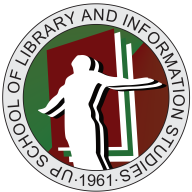Gender-Specific Machine Learning Analysis of Sarcopenia Risk in Aging Filipinos
Demographic and Lifestyle Perspectives
Keywords:
sarcopenia, gender-specific analysis, aging population, machine learning, predictive modeling, health promotionAbstract
This study investigates the demographical and lifestyle risk factors for sarcopenia-specific gender risks to which the aging Filipino population would be predisposed, including age, occupation, smoking history, alcohol use, and existence of comorbidities. The predictability of physical performance measures—lifting strength, need for assistance with walking, and ability to climb up/downstairs—utilizing machine learning models was assessed. Demographic factors, such as age and gender with the type of occupation, influenced the risk of sarcopenia. In contrast, lifestyle factors, such as smoking and alcohol intake, were not found to be predictive of sarcopenia in this sample. Such a high prevalence among males demands an approach by health intervention differently tailored to be gender sensitive.
For the performance of the different machine learning models, this study further gauges the different performance machine learning models and finds that SVM predicts the risk of sarcopenia with 85% accuracy as opposed to other approaches. In terms of recall, SVM did well in the case of prediction of males but underperformed in females and non-binary classifications, which may indicate an area of calibration. This research suggests that integrating predictive modeling into clinical practice can enhance early detection and targeted interventions for sarcopenia. It is advisable to implement. Further studies on sarcopenia using machine learning in the aging Filipino population is essential to determine novel risk factors, improve therapies, and predict disease progression, fostering evidence-based public health policies and better disease management.
Downloads
Published
How to Cite
Issue
Section
License
Copyright (c) 2024 Maria Maura Tinao, Roda L. Tajon

This work is licensed under a Creative Commons Attribution 4.0 International License.
All articles published by PhJLIS are licensed under the Creative Commons Attribution 4.0 International License. This allows anyone to share and adapt the work, provided that the original work and source are properly cited.


